Champions for Health
The Department of Health Policy is training students to work in the front and center of the health care debate.
When Paula Lantz left Ann Arbor, Mich., to become GW's new chair of the Department of Health Policy, she moved more than 500 miles away from home. Where she was really relocated, however, was smack in the middle of the nation's most important health policy issues.
"There are over 200 health agencies in a radius of two miles from here," Dr. Lantz said in a recent interview at her K Street office, which is five blocks from the White House and less than a mile to her house. Prior to her current job, Dr. Lantz chaired the Department of Health Management and Policy at the University of Michigan.
Now, she said, GW opens up many new worlds: "There is the federal government, the District of Columbia government, professional associations, trade associations. This location affords so many opportunities for the faculty for research and for students for internships and experiential learning."
Dr. Lantz, 53, was a policy practitioner who followed her deep passion for teaching and research. Before she went into academics, she worked in the field, as an epidemiologist for the Wisconsin Division of Health and as a senior researcher for a clinic with 400 physicians. Her areas of research expertise are public health policy related to clinical preventive services, cancer prevention and treatment, and health disparities.
She joins health policy faculty at GW known for the hands-on experience they bring straight into the classroom. "The vast majority of the faculty have worked on the Hill or for other organizations such as federal agencies, law firms, and advocacy groups," Dr. Lantz says. "That is our sweet spot. We bring together lawyers [about a third of the faculty have law degrees] with PhD researchers and clinicians to address policy scholarship. We have a very multidisciplinary faculty with a diverse research portfolio, from foundations to the federal government."
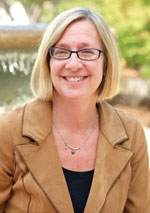
Paula Lantz became chair of the Department of Health Policy within the School of Public Health and Health Services in 2011. In October 2012 she and department founder Sara Rosenbaum were elected to the Institute of Medicine, marking the first time two George Washington faculty members have been elected simultaneously. Election to the Institute of Medicine— established in 1970 by the National Academy of Sciences—is considered one of the highest honors in the fields of health and medicine, and recognizes individuals who have demonstrated outstanding professional achievement and commitment to service.
That portfolio has attracted approximately $40 million in grants and contracts each year, more than most departments at the university, which "is atypical for research funding outside of medical or engineering schools," says Joel Teitelbaum, 43, associate professor of health policy and vice chair for academic affairs.
Students are drawn to the school for its location, academics, and opportunity, says Dr. Teitelbaum. "They are interested in shaping, formulating, and making policy."
The department currently has more than 200 students taught by 42 full and 85 adjunct professors. Most students in the department are pursuing a master's in public health with a specialization in policy, but there are undergraduates and doctoral candidates as well. The department also houses the Hirsh Health Law and Policy Program, the Center for Health Policy Research, and the Geiger Gibson Program in Community Health Policy.
Health policy is about improving the public's health by creating laws, regulations, programs, and guidelines. Sometimes it involves health care, like the Affordable Care Act, and sometimes it doesn't, including such topics as "seat belt laws, school-entry vaccination policies, and cigarette taxes," Dr. Lantz says. "The Department of Health Policy focuses on the design of new and innovative policies, the analysis of policy options, and the evaluation of the impact of policies that have been implemented."
The essence of good policy is not only having facts and figures on hand, but making decisions steeped in practice, says Georges C. Benjamin, the executive director of the American Public Health Association. "Health is a major industry in the United States," he says. "It is important for the well-being of the population to get health policy right. That requires people to have experience in the trenches."
"What makes GW is its presence in D.C. There is nothing like being in the middle of an event [like health care reform] if you use your access and engage in the event. That is how being in D.C. working policy is different from somebody doing it from the outside."
Sara Rosenbaum founded the Health Policy Department in 2002 on those tenets. She worked in the Clinton administration helping draft the health security act and programs for childhood vaccinations and is a national expert on Medicare and Medicaid. She believed students needed to think critically, ferret out and analyze data, work in the field, and write sound policy.
"Sara Rosenbaum is a premier attorney," says Lisa Simpson, president of Academy Health, a professional association for health services and health policy researchers. "She understands the role of the law in legislative policymaking and in the implementation of laws and regulation along the way. You have to work closely with the policymaking process and all that goes on after legislation passes."
Fast-forward 10 years, Dr. Lantz believes the same foundation holds true. "Our mission is to bring new ideas and evidence to the mix," she says. "We have to understand all sides to be objective, but we don't have to be neutral. Our hope is that the research will inform the policy."
In a company town like Washington, D.C., where politics is a local sport, health policy has become a divisive partisan issue. But most presidents, regardless of party, have wrestled with health care and health policy, says Dr. Benjamin of the American Public Health Association. "Nixon. Reagan tried HMOs," he says. "The presidents can't do anything without tripping over it. There are no Democratic and Republican heart attacks. Bush gave $100 million to community health centers. It just is a difference in perspective and the role of government."
Dr. Lantz sees that health policy has expanded and changed greatly in a decade, with health care reform laws, more public/private partnerships, and policymakers looking more globally for solutions. Therefore, no one can accurately predict exactly what health policy jobs will be there in five to 10 years, nor what skills will be needed, she says.
With that in mind, the department is revamping its curriculum for next fall around four core areas: knowledge, communication skills, analytical skills, and professional development and leadership. Currently the breadth of course offerings runs from bread-and-butter classes such as policy analysis, health economics, and state health policy to issue-based classes such as vaccine policy or where health care policy crosses with civil rights. Dr. Lantz currently teaches advanced policy analysis.
"In designing our new curriculum, we talked to our students and we talked to people in the field," she says. "We asked: What knowledge and skills do our graduates need to be leaders in the field of health policy? Implementing a redesigned curriculum is hard work but needs to be done to stay at the cutting edge of the field." Dr. Lantz has more items on her to-do list. After 10 years of launching students' careers, she wants to better access the untapped potential and relationships with the department's graduates. "Alumni can help with mentoring, placement, and be a resource for GW students," Dr. Lantz says.
And she would like to offer more scholarships to attract the best students. "We want to be the No. 1 choice for MPHs in health policy, which we can do because of our strategic location, our experienced and multidisciplinary faculty, and our cutting-edge, skills-based curriculum," she says.
Student Perspectives
GW keeps company with the likes of Harvard, Columbia, the University of Michigan, and the University of North Carolina in Chapel Hill, but "what drew me to GW is the location in D.C." and the internship programs, says Ahimsa Govender, a 23-year-old second-year master's student from Detroit. She has a paid internship with a pharmaceutical and vaccine company.
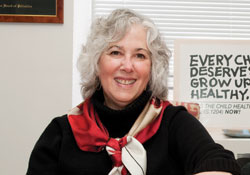
Sara Rosenbaum, Harold and Jane Hirsh Professor of Health Law and Policy, founded the Department of Health Policy in 2002.
William Atkins
After graduating from Michigan State with a degree in economics, Ms. Govender spent a year in India, working in public health. "My time in India had a big impact on me," she says. "To make change, you have to know the policy. You have to go to the government and say what is working and what is not."
Her favorite class so far has been Health Service and Law, which she took this past summer. She studied a lot of cases where the law either helped or hindered the public health system. Much of the discussion turned to the Affordable Healthcare Act, examining its current and future impact.
Govender dreams of working for the World Health Organization because she is interested in comparing health systems around the world.
Devi Mehta, 30, started in the department as a research associate a few years ago and entered the program in 2010. She has a law degree from Rutgers University, worked for a law firm for a few years, and found she was interested in health policy. She and a group of lawyers at the school created a website [healthinfolaw.org] for non-lawyers to help explain health legislation.
"I want to use both my law and MPH degrees in a policymaking role, as an analyst," Ms. Mehta says. "If I found a law firm that is flexible, and does policy or lobby work, and analyzes legislation, that would be great. Also, the government is growing so significantly, I am pursuing all options. I would consider things at GW, too."
The department has promoted within its ranks. Dr. Teitelbaum is a good example. He received a Master's of Law degree from GW in 1998 at 28 and a year later joined the faculty. "I started doing behavioral law and policy work, then substance abuse," he says. "Then I morphed into health care quality law and policy, and expanded into the intersection of health care and civil rights. I do some work with Sara [Rosenbaum] on disability law and race discrimination, health care disparity, and health reform —the Affordable Healthcare Act."
In a joint program with the Robert Wood Johnson Foundation and Hirsh Health Law and Policy Program, Dr. Teitelbaum helped start a website [healthreformgps.org] to explain the current health reform. He teaches health service and law, health care law, and the health care and civil rights seminar.
"GW offers me a wonderful opportunity to do what I like to do: teach," he says. "I also can focus on what is out in the world. That is the practical portion, the hands-on work, legal-and policy-wise. I work for funders and others with real-world implications. The faculty is writing articles for peer journals and real-world writing. It's not very ivory tower here."
Signature Programs
The Department of Health Policy is home to several signature centers and programs engaged in specialized research. Multidisciplinary faculty and staff members work in close collaboration to carry out far-reaching studies and investigations aimed at promoting population health and high-quality health care. Examples include:
The Center for Health Policy Research: This research center led to the establishment of the department. The center specializes in cutting-edge investigations into issues of health care access and coverage; Medicaid, Medicare and dual eligibility; health care and health status disparities; public health policy such as emergency preparedness, clinical preventive services such as vaccines and cancer screening; and health information technology. Center faculty and staff produce a large number of policy briefs, white papers, technical reports, and peer-reviewed publications each year.
The Geiger Gibson Program in Community Health Policy and the Geiger Gibson/RCHN Community Health Foundation Research Collaborative: A program devoted to the study of medically underserved communities in the United States and to the study of community health centers, the nation's largest system of primary health care services for the medically underserved.
The Hirsh Health Law and Policy Program: A program specializing in all phases of health law and policy, with a particular emphasis on federal legislation, regulatory law, and laws that affect the public's health and shape the financing, delivery, and quality of health care. This includes a number of projects related to public health policy and disease surveillance work.
Health Reform GPS: Health Reform GPS is a joint project of the Robert Wood Johnson Foundation and the Hirsh Health Law and Policy Program. The project tracks and analyzes implementation of the Affordable Care Act at the federal and state levels, evaluating how major developments impact patients and consumers, employers and unions, health insurers, and health care providers.
The Center for Health Care Quality: A center devoted to the study of health care quality. The center is home to Aligning Forces for Quality, a 10-year, $300 million program of the Robert Wood Johnson Foundation. The center is also the incubator of other research programs aimed at improving health care quality and reducing health quality disparities among patient populations.
The Economics and Health Policy Program: A program specializing in the field of health economics, including research related to health care markets, health care financing, the cost-effectiveness/utility of health-related interventions, and comparative effectiveness research.
Faculty Members to Watch
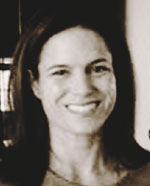 Rebecca Katz teaches homeland security and public health policy. Her interest in the subject started years ago, post-college, when she was in India and fell sick with brucellosis, a bacterium that is often found in animals and can cause fever, chills, fatigue, and achy joints. The disease lingered in India after years of chemical warfare long ago. Ms. Katz became an expert on her own illness and repercussions of bio-weapons.
Rebecca Katz teaches homeland security and public health policy. Her interest in the subject started years ago, post-college, when she was in India and fell sick with brucellosis, a bacterium that is often found in animals and can cause fever, chills, fatigue, and achy joints. The disease lingered in India after years of chemical warfare long ago. Ms. Katz became an expert on her own illness and repercussions of bio-weapons.
She went on to study bioethics, epidemiology, international relations, disease and security, and biodefense, earning a Master of Public Health with a concentration on international health from Yale and a Master of Arts and Doctorate of Philosophy in public affairs from Princeton.
By 2006, she was working part-time for the State Department on biological weapons conventions and emerging pandemic threats and teaching part-time at GW. Now she is a full-time tenured professor, who still consults to the federal government on how to build capacity for global health security.
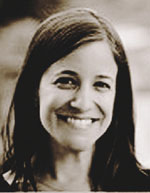 Naomi Seiler was on the Hill for eight years, as the counsel to Rep. Henry Waxman, who headed the House Committee on Energy and Commerce.
Naomi Seiler was on the Hill for eight years, as the counsel to Rep. Henry Waxman, who headed the House Committee on Energy and Commerce.
For that time, Congress felt like the center of the universe, Ms. Seiler says. But she wondered what life would be like if she had a little more time to think about issues a bit more deeply. Then she heard about the Department of Health Policy at GW. "The department has a mission that is known for really having a goal of improving care for the underserved," she says. "I wanted to be where there is that kind of mission for health care."
Ms. Seiler has a law degree from Yale and was a Greenwall Fellow in Bioethics and Health Policy at the Johns Hopkins Bloomberg School of Public Health. She teaches public health law. Her areas of interest are reproductive health, HIV/AIDs, and bioethics.
"I have mostly health policy students," Ms. Seiler says. "This is probably the only law course they are going to take. I don't want them to memorize laws. I want them to know how the law works."
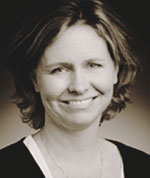 Patricia Pittman, a medical anthropologist, has a Doctor of Philosophy from the University of Buenos Aires. She lived in Argentina for 16 years, working for the government and the Pan American Health Organization.
Patricia Pittman, a medical anthropologist, has a Doctor of Philosophy from the University of Buenos Aires. She lived in Argentina for 16 years, working for the government and the Pan American Health Organization.
She sees that a quarter of the 800,000 physicians and an eighth of the 3 million nurses practicing in America are foreign trained. That interests her because it raises questions of how doctors are trained abroad, why they migrate here, and how they are regulated and encouraged to practice in rural areas, which is where many foreign-educated health care professionals start out.
But what happens after these doctors and nurses leave underserved areas to return to a more urban practice, and "why aren't we producing the professionals we need?" Dr. Pittman asks.
The shortage of health care workers isn't limited to the United States; it affects many countries. She studies the movement of health care workers, the future of nursing, and the rights of guest or migrant health care workers through grants from the Robert Wood Johnson Foundation and the MacArthur Foundation. She and 27 of her colleagues from across GW in areas such as the School of Nursing, where she also has an appointment, to the School of Medicine are forming a task force to study this issue. "This is a big ethical policy issue of our times," Dr. Pittman says.

